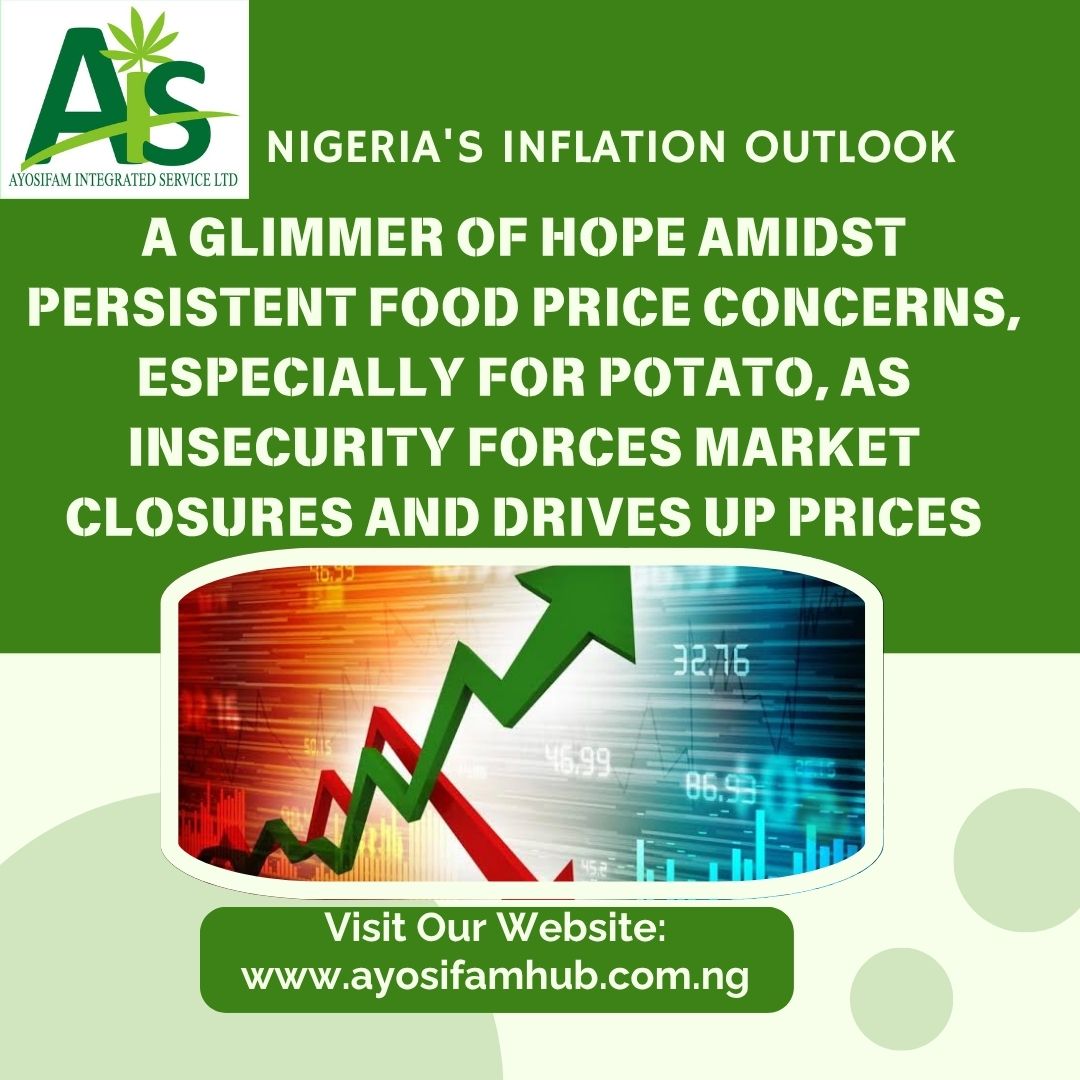By AyosifamHub
As we navigate through mid-2025, Nigeria’s economic landscape continues to present a mixed bag of optimism and apprehension. Our analysis at AyosifamHub indicates a positive trend for headline inflation in June 2025, with an anticipated decline that brings a sense of relief to many. However, the persistent shadow of food inflation, particularly due to heightened insecurity in critical agricultural regions, remains a significant challenge. This has been tragically underscored by the forced closure of vital trade hubs, such as the entire Gbu-Gbu market in Edu LGA, Kwara State, directly impacting the availability and price of staple crops like potatoes.
The Good News: Headline Inflation on a Downward Trajectory
We’re projecting Nigeria’s headline inflation rate for June 2025 to fall within the range of 22.4%–22.8%. This anticipated decline is largely attributable to several key factors that have provided much-needed stability to the economy. The Central Bank’s sustained tight monetary policy, evident in elevated yields on treasury instruments, has played a crucial role. This policy, alongside the marginal appreciation of the naira at the NAFEM window, has helped suppress core inflation, especially in sectors like pharmaceuticals and logistics. These factors, combined with continued FX stability and minimal volatility in energy prices, contribute significantly to the overall decline in the inflation rate, signalling a potential easing of the cost of living burden for many Nigerians. We at AyosifamHub are closely monitoring these developments.
The Lingering Concern: The Stubborn Challenge of Food Inflation
Despite the positive outlook for headline inflation, food inflation continues to be a formidable challenge, casting a shadow over the broader economic improvements. The primary driver behind this persistent concern is the heightened insecurity in key food-producing areas. The disruptions caused by insecurity, including banditry and communal clashes, have severely impacted farming activities in these fertile regions. Farmers face risks to their lives and livelihoods, leading to reduced planting, limited access to farmlands, and challenges in transporting harvested produce to markets.
A stark example of this impact is the recent, regrettable closure of the entire Gbu-Gbu market in Edu LGA, Kwara State, due to escalating insecurity. Gbu-Gbu market, a vital hub for trade in the region, served as a crucial point for farmers to sell their produce and for consumers to access food items. Its closure not only disrupts the livelihoods of countless traders and farmers but also significantly restricts the supply of food to the surrounding communities.
We’ve observed that potato prices have continued to increase. It’s important to note that while the Jos Plateau is a major potato-growing region, Kwara State also contributes to potato production, including sweet potatoes, as indicated by various studies focusing on areas like Offa and Oyun LGAs. Therefore, insecurity affecting parts of Kwara can directly impact potato supply from within the state, further contributing to price hikes. Other issues like climate change impacts (e.g., excessive rainfall leading to blight), high input costs for farmers (pesticides, fertilizers), and the overall difficulty in accessing quality seeds have pushed potato prices upward. The closing of key markets like Gbu-Gbu further exacerbates the distribution challenges for all produce, but particularly for crops where supply is already constrained by other factors.
What This Means for Nigerians
While the expected decline in headline inflation is a welcome development, it’s crucial to acknowledge that the average Nigerian household will still feel the pinch of elevated food prices, particularly for essential items like potato. This disparity highlights the need for a multi-pronged approach to address inflation. The government and relevant stakeholders must redouble their efforts to tackle insecurity in food-producing regions, including areas within Kwara State, and work towards re-establishing safety and stability for markets like Gbu-Gbu. This includes enhancing security presence, fostering community engagement, and implementing sustainable solutions that protect farmers and facilitate unhindered agricultural production and distribution. Furthermore, initiatives aimed at boosting local food production, improving agricultural infrastructure, and providing support to farmers of crucial crops like potato in all relevant farming areas will be vital in mitigating the impact of food inflation, while also addressing market dynamics specific to each crop.
At AyosifamHub, we believe that a holistic approach, addressing both macroeconomic stability and the critical issue of food security, is essential for truly alleviating the burden of inflation on Nigerian citizens. We will continue to provide timely insights and analysis to help you navigate the evolving economic landscape.
Stay tuned to AyosifamHub for more updates and in-depth analysis on Nigeria’s economic indicators.




